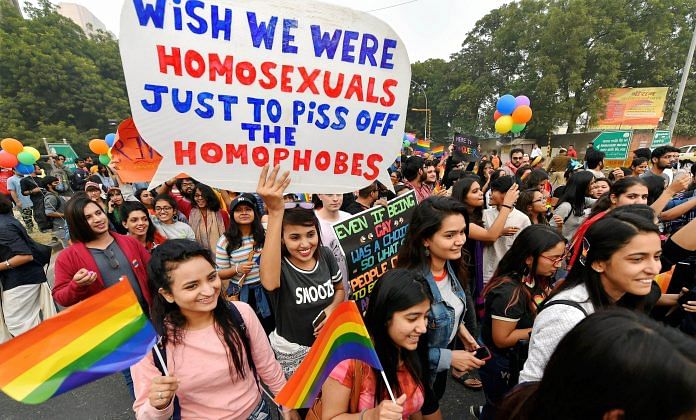36 of the 52 Commonwealth countries share the remnants of Britain’s legalised homophobia in the form of Section 377 in their penal codes.
New Delhi: While the legal struggle to get Section 377 of the Indian Penal Code struck down goes on in India, it is not the only country where this colonial law continues to haunt sexual minorities.
In fact, 36 of the 52 Commonwealth countries across the world share the remnants of Britain’s legalised homophobia in the form of Section 377 in their penal codes. In all these countries, the exact same Section 377 criminalises anal sex between men as well as other homosexual acts, and is even worded similarly.
“Whoever voluntarily has carnal intercourse against the order of nature with any man, woman or animal, shall be punished with…” laws across many of these countries state, with differing degrees of punishment.
For example, while the maximum duration of imprisonment in Pakistan under Section 377 is 10 years, it is 20 years in Malaysia.
While much has been written about the manner in which the British empire has introduced this law in India, how it exported the same law to other South Asian nations besides Australia, Southeast Asia and Africa is relatively less known.
South Asian countries
After attaining independence from colonial rule, both India and Pakistan adopted new constitutions and penal codes. However, that did not preclude the newly born states to retain at least some remnants of colonial control in their statute books — Section 377 being one of them. Later in 1971, when Bangladesh seceded from Pakistan, the Section was retained there as well.
While India may very well be on its way to relegating Section 377 to history books, its South Asian neighbours have shown little or no progress in this regard. In what may be a bittersweet consequence of the law, though, the police in Pakistan’s Jhelum district arrested a man earlier this month on charges of committing marital rape and sodomy on his wife under Section 377.
Other countries
Other countries where Section 377 was adopted include Singapore, Malaysia, Myanmar, Maldives, Jamaica, among others. While in Singapore, the Section was amended and does not read exactly like the original provision, it continues to vaguely criminalise gay male sex between two consenting adults if it is deemed to be “grossly indecent”.
In fact, the Singaporean law includes consenting gay sex between “sexual penetration with a corpse” and “sexual penetration with living animal”.
While legal battles are being waged in most of these countries against this law, with India’s top court ruling privacy to be a fundamental right, it may well be the first among the remaining lot to rid itself of this legalised homophobia.



